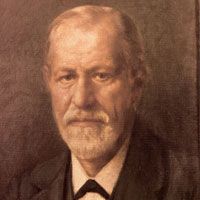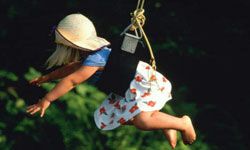Although 21st-century moms and dads might be hard-pressed to find direct Freudian references on parenting message boards, the Austrian doctor's psychoanalytic principles are closely interwoven in the best-selling parenting advice book of all time [source: Sullivan]. Pediatrician Benjamin Spock's 1946 best-seller "Baby and Child Care" was, in fact, fundamentally based on Sigmund Freud's theories of childhood psychosexual development. The chapter titles and index make no reference to penis envy and Oedipal complexes, but the book's sunny admonishments are surreptitiously laced with Freud. In fact, Spock's relatively lax approach to bringing up baby –- which includes doing away with feeding schedules and eschewing punishment, for instance -- drew directly from his studies at the New York Psychoanalytic Institute in the late 1930s [source: Sullivan]. Generations of parents who've poured over the multiple editions of Spock's approachable manual have been, unknowingly, raising their children on Freudian principle to protect their young psyches from repressive damage [source: Sullivan].
Unlike those Spock devotees, whose understanding of childhood revolves largely around the advice of others, Freud conceptualized those formative years from his own experiences. Based on the relationship with his father in particular, Sigmund Freud's 1900 book "Interpretation of Dreams" outlines his cornerstone theories -- five distinct and eyebrow-raising childhood phases that theoretically determine how infants eventually manage their conscious and unconscious identities in adulthood. According to the father of psychoanalysis, babies come into the world in their oral stage, fixated on feeding, then transitioning around 18 months into the anal stage that culminates with toilet training [source: Burton]. Then, from ages 3 to 6, things get dicier during the phallic stage, in which their sexual identities take shape around parental attachment; Oedipus and Electra emerge during that time, pandering for the opposite-sex parent's affection. And finally, after a period of latency in the tween years, pubescent youths navigate the genital stage, when parents' previous permissiveness or repression manifests in either healthy or maladjusted behavior [source: Burton].
Advertisement
Since Spock so successfully wove together those Freudian phases with practical parenting advice, it would be interesting to project how Freud might regard the myriad parenting methods practiced today. In other words, as Spock injected Freud into his famous parenting manual, how might Freud inject himself into more contemporary parenting models? Perhaps the groundbreaking neurologist-turned-shrink -- and father of six -- might offer the following five critiques to millennial moms and dads.





